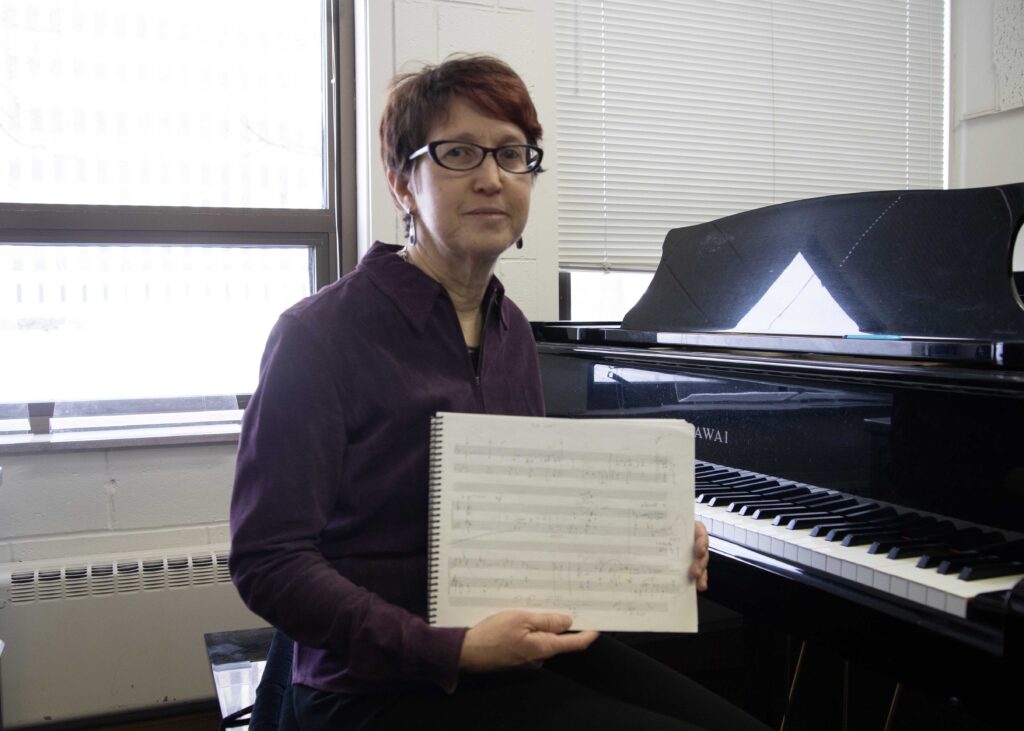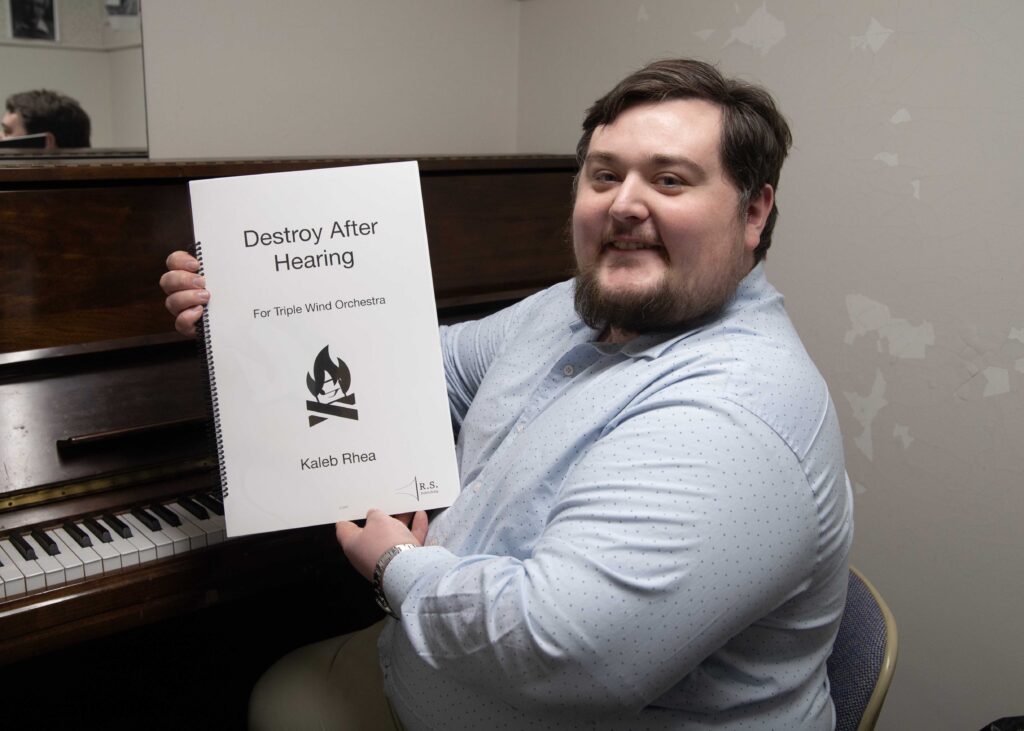Classical music filled Doctoral music theory and composition student Kaleb Rhea’s ears whenever he would enter his grandparents house as a young boy. Kaleb’s grandmother softly moved her hands along the keys of the piano, captivating him from a very early on. This caused Kaleb to not only enjoy her music, but made him appreciate music on a larger scale
Music plays a big part of many people’s lives, but how do musicians think of creative melodies, tunes, and harmonies for their compositions? According to composer and theorist Arnold Schoenberg, “composition is an intensely personal journey shaped by individual creativity, experience, and technique.” He explains that every musician develops their own unique approach to crafting melodies and harmonies, influenced by their background, inspirations, and artistic vision.

For many, their love for music begins in childhood. Amelia Kaplan, a professor of music composition at Ball State University, has worked at the university for 14 years and now teaches courses varying from composition to instrumental ensemble. Amelia has been studying music since she was just 10 years old.
“I didn’t think I was going to be a musician when I went to college,” Amelia says. “It seemed really impractical, but afterwards, I kind of realized that was what I wanted to do the most.”
The music industry is a challenging field to work and succeed in, according to Careers in Music. However, for music composition majors like Carlos Juanillo-Castillo, music has left them too enchanted to see themselves pursuing a career in anything else.
Carlos shares a similar story to Amelia and has been interested in music for half of his life. He recalls how his love for music started in middle school when he picked his first instrument.
“I’ve always found joy in music,” Carlos says.
Carlos started composing music at the beginning of his freshman year of high school. He says he started playing with different musical ideas as well as improvising. It was through this experimentation that Carlos took the jump and started learning music composition.
Inspiration for Carlos has always been brought to him through natural sounds. Things such as a scrape of a shoe on the sidewalk or simply tapping.
Carlos’ composing process “is different each time,” but when inspiration hits, it can be “all-consuming.” He normally thinks about the piece in his head all day, playing it on a loop until he can sit down and sketch the “broad picture.”

Similarly to Carlos, Kaleb also discovered the joy of music at an early age and began composing music in high school. His first ever music compositions he ever created were for video games.
Inspiration for music composition can be derived from many things, according to The U.S.A. Songwriting Competition. However, one thing that musicians and composers tend to struggle with is striving for perfection, says Amelia.
“They feel like it has to be perfect, and that will get you stuck because there is no perfect piece,” Amelia says.
Creative blocks are a normal experience that many artists and creators encounter and can be caused by a variety of different things including personal issues and emotional barriers, according to Interactions Design Foundation. Kaleb says that creative blocks are “just a part of [each] composer,” and he normally fights against creative blocks by allowing his mind to take a break.
“I will put the project back on the shelf and think about it in the back of my mind for a week or two,” says Kaleb.
The U.S.A. Songwriting Competition suggests that composers should write one part at a time and start with less daunting tasks. Amelia says the composition process is different for everybody and there is “no right answer.” She recognizes that some people prefer to improvise before writing anything down, while others prefer to plan out the writing process.
When she writes her own music, Amelia starts with what instruments she has in mind.
“I tend to think about what things those instruments can do, what they sound like, what their limitations are, and what they are good at,” Amelia says.
Carlos recommends for anyone interested in music composition to start small and to write short pieces. He says that the piece itself does not need to be a complete song, but over time the more the composition is expanded on, the more the composer can see their writing tendencies. Kaleb suggests saving all ideas that come to mind, no matter if they are good or bad.
“You might be discouraged or something because something is not working your way, but that’s just part of the learning process,” Kaleb says.
Contact Linnea Sundquist via email at linnea.sundquist@bsu.edu.
Sources: Careers in Music, The U.S.A. Songwriting Competition, Interactions Design Foundation



